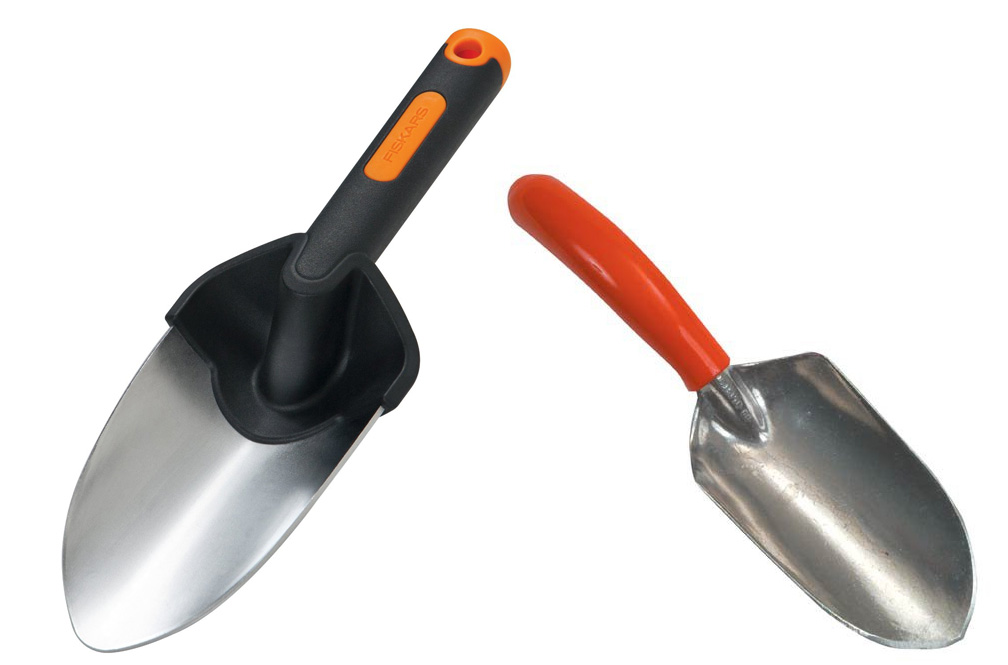
This weekend is traditionally when Canadians plant their gardens, and as a result we are once again asking the age-old question:
Does TROWEL come from an Anglo-Saxon word meaning "small garden tool that mysteriously vanishes as soon as you set it down after planting something"?Alas it does not (but it should). It came to us from French in the 1300s, a derivative of the Latin truella / trulla (stirring-spoon, skimmer, ladle). Most gardening terms are indeed Anglo-Saxon, but this one is not, because it didn't start out as a gardening tool but as a masonry tool for spreading mortar and cement.
It wasn't until the 18th century that we started using "trowel" for the small spade it is today.
Since my garden seems to swallow up trowels, I have to buy a new one every spring, and I was quite surprised to see that my 2016 model bore a label calling it a "shovel". Admittedly, the trowel came from China, so this may account for the linguistic oddity. Would any of you call a trowel a shovel? Can you imagine if you sent someone out after a snowstorm with instructions to buy a shovel and they came back with a trowel?
"Shovel" is a very old Anglo-Saxon word, related to the word "shove", since moving something is involved in both cases.
"Spade" in the garden tool sense is also of Anglo-Saxon origin, but in the "suit of cards" sense it comes from Italian spade, plural of spada (sword) via Latin from Greek spathē (blade, paddle).
How did spades come to be the epitome of plain, forthright speaking? Surprisingly, the expression "to call a spade a spade" has its origins in ancient Greece, but the Greeks didn't use their word for "spade"; they said essentially, "call a bowl a bowl". In the Renaissance, Erasmus mistook σκάϕην (skáphēn>, bowl, trough) in this expression in a passage from Plutarch for σκαϕεῖον (skapheîon, spade) and mistranslated it into Latin. Subsequently Erasmus's mistake was translated into English and perpetuated. I think we need to correct this mistake by adopting the equivalent French expression:
appeler un chat un chat (call a cat a cat).
P.S.
If you find the English language fascinating, you might enjoy regular
updates about English usage and word origins from Wordlady. Receive
every new post delivered right to your inbox! You can either:
use
the subscribe window at the top of this page
OR
(if
you are reading this on a mobile device): send me an email with the
subject line SUBSCRIBE at wordlady.barber@gmail.com
Privacy
policy: we will not sell, rent, or give your name or address to
anyone. You can unsubscribe at any point.
Follow
me on twitter: @thewordlady

I'm reminded of this silly old joke: A nun cam back to the convent very upset. Mother Superior asked her what was wrong.
ReplyDelete"Mother Superior, I was just passing by a construction site and you would not believe the language those men were using!"
"Daughter, workmen like that believe in calling a spade a spade."
"Maybe so, Mother Superior, but they called it a f**king shovel!"